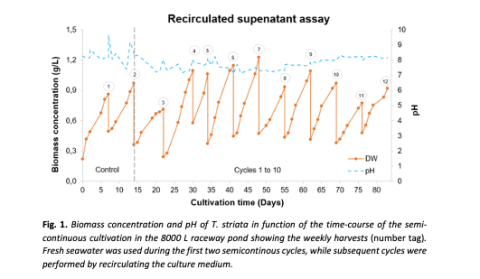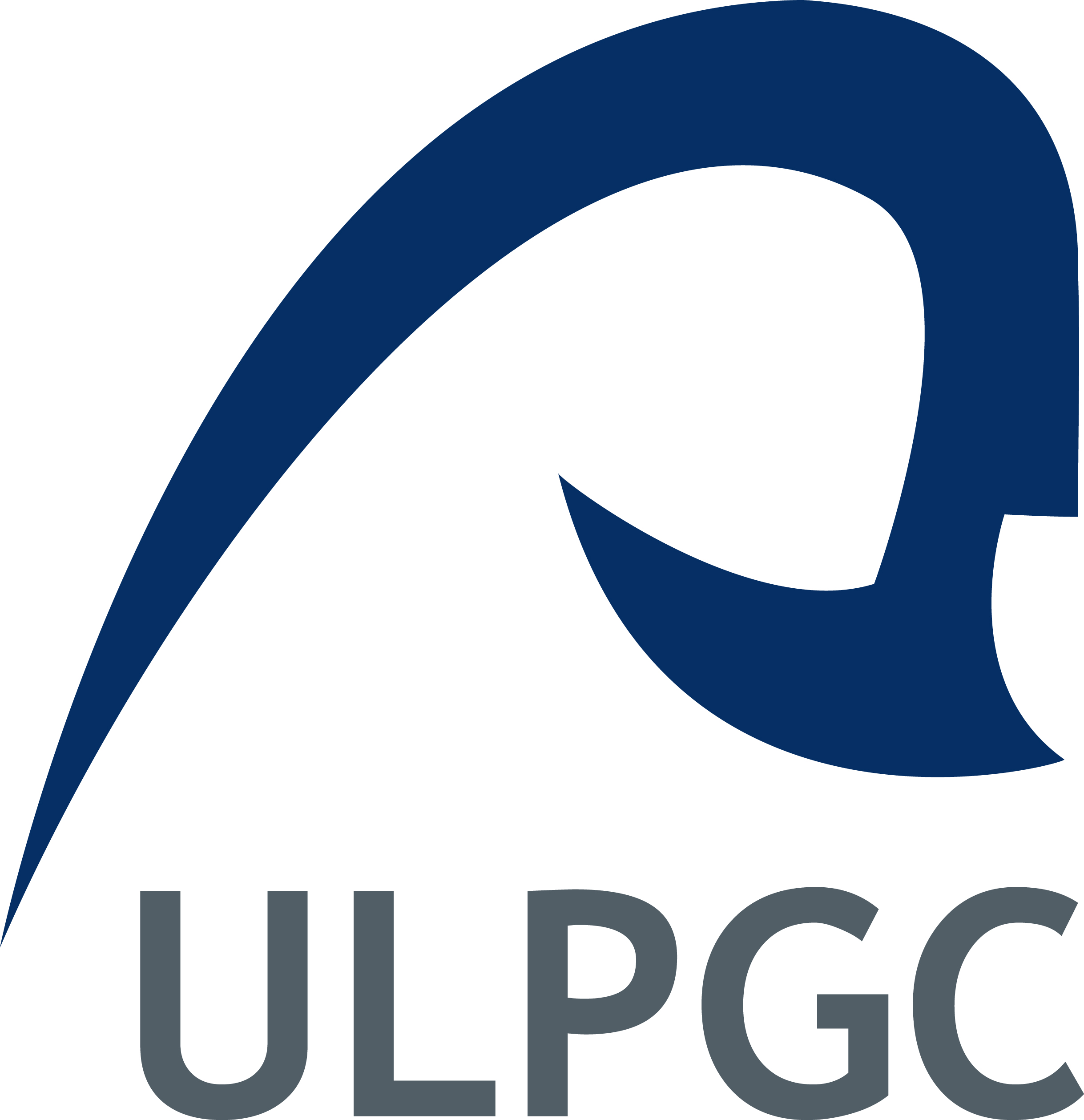Ph.D. Program in Oceanography and Global Change at the Canary Islands, Spain
Submitted by ignacio on Wed, 05/25/2022 - 11:11

Gran Canaria is a strategic site for microalgae production due to its ideal climatological conditions and focal geographic location. The Biotechnology Department of the Canarian Institute of Technology (ITC) investigates all aspects of microalgae cultivation and processing at pilot to demo scale, in order to develop industrial knowledge on both economically and environmentally sustainable production technologies. The goal is to transfer this know-how to companies interested in investing on the vegetal aquaculture sector in the Canary Islands, favouring a blue bioeconomy based on alternative and sustainable strategies. The main bottlenecks for microalgae cultivation are the energy, freshwater and fertilizer consumption, and management of the effluents, all of which represent a relevant cost for the companies and for the environment. Carried out at the ITC facilities, this PhD research addresses the optimization of microalgal cultivation and processing strategies at large scale, also focusing on the valorization of locally available hydric, energetic and nutrient resources. The fast-growing chlorophytes Tetraselmis sp. and Dunaliella salina, largely cultivated worldwide for industrial purposes, have been recently included on the list of native species allowed for cultivation in the Canary Islands. To assess the optimization of water and energy use strategies, a native strain of T. striata (ITC-TS-2017) was scaled up in open raceways (RWs) to a volume of 8000 L and operated semicontinuously. The used culture medium proceeding from the biomass separation by centrifuge (supernatant) was recirculated, in order to reduce both the effluent volume and energy associated to fresh seawater pumping. Additionally, to optimize the nutrient use in the cultivation process, cultures in 250-L RWs where gradually induced to nitrogen starvation, in order to identify the minimal concentration of N in the culture medium that do not significantly affect the productivity. There was no significant difference in terms of biomass productivity between the condition using recirculated supernatant and the condition in N starvation compared to their respective controls. Optimisation of water and energy use in the cultivation of native D. salina strain (ITC-DS-5105) was performed by using hypersaline water (brine) discarded by a reverse-osmosis technology seawater desalination plant located nearby the ITC facilities. No significant difference in biomass productivity and betacarotene content in D. salina cultivated in hypersaline water with respect to the control (natural seawater) was observed. Altogether, these results point out natives T. striata and D. salina as promising candidates for large-scale cultivation in Canary Island, and pave the way for the development of new cultivation processes based on low resource consumption and minimal environmental impact.




Add new comment